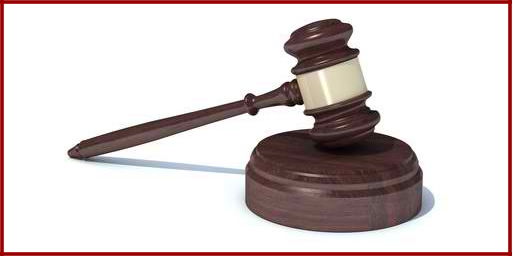Update: On Friday December 12, 2008 President Trump signed the federal prison reform bill into law.
On Nov. 14, President Donald Trump endorsed a bipartisan prison reform bill that will reform the federal prison system. The goal of this legislation is to assist inmates in preparing for a productive and successful life after release. However, the prison reform bill still has to be approved by the Senate.

The original First Step Act, which was co-sponsored by Democrat Hakeem Jeffries of New York and Republican Doug Collins of Georgia, passed overwhelmingly back in May 2018 in the House of Representatives. However, this prison reform bill only focused on making reforms to help reduce recidivism.
Bipartisan Prison Reform Bill Unifies the Parties, Brings Hope to Prisoners
When the President endorsed the prison reform bill, he highlighted the fact that it will help give those with a criminal past a second chance at life and also make communities across America safer. He also pointed out that its bipartisan nature is something to be celebrated during a time when our nation is unfortunately quite divided on many issues.
The new version of the legislation contains additional sentencing reform measures that have received support from a number of Senators. The current prison reform bill would have to pass in the Senate by the end of the year before the January seating of the new Congress. Its supporters hope President Trump’s endorsement and focus on law and order as a prevailing theme in his presidency, will inspire Senate Republicans.
The President urged lawmakers in both the Senate and House to work hard to bring a final prison reform bill to his desk so that these measures can be implemented as soon as possible.
Employment Programs and Assistance Included in New Prison Reform Bill
The First Step Act compels the federal Bureau of Prisons to assign credits to inmates based on merit to allow them to complete their sentences through home confinement or in halfway houses.
It also helps to open up more employment opportunities for ex-offender applicants and inmates while also offering compassionate release programs for those who face terminal illnesses.
The prison reform bill does away with the “three-strike” provision that enforced mandatory life sentences for drug offenders who have been arrested three times. The sentence has been changed to 25 years.
Shortly after this announcement, a White House official revealed that Republican Senate Majority Leader Mitch McConnell urged proponents to wait until after the November 6 elections to pursue the prison reform bill to help ensure it made it to the Senate floor and there would be enough votes to pass it in the 100-member chamber. However, those involved are highly optimistic that many more than 60 votes are possible for the measure.
Goal is to Ensure Punishments Fit Crimes, Rehabilitate Former Prisoners
Kevin Ring, president of Families Against Mandatory Minimums (FAMM), is excited that the bill will help keep families together, reduce crime and strengthen communities. FAMM is an advocacy group focused on criminal justice reform.
Senate Judiciary Committee Chairman Charles Grassley, who has promoted his own criminal justice reform bill that’s even more comprehensive than the House version, praised the First Step Act as “an important step.” The prison reform bill will improve justice and promote safe communities by focusing on punishments that fit the crimes.
Pre-employee screening is used in part to look at the criminal records for individuals who are applying for a particular position.
Source: https://in.reuters.com/article/usa-trump-justice/corrected-trump-endorses-u-s-house-prison-reform-bill-idINKCN1NK09B
Disclaimer: The information on InstantCriminalChecks.com is governed by our Terms of Use and is never intended as legal advice.











